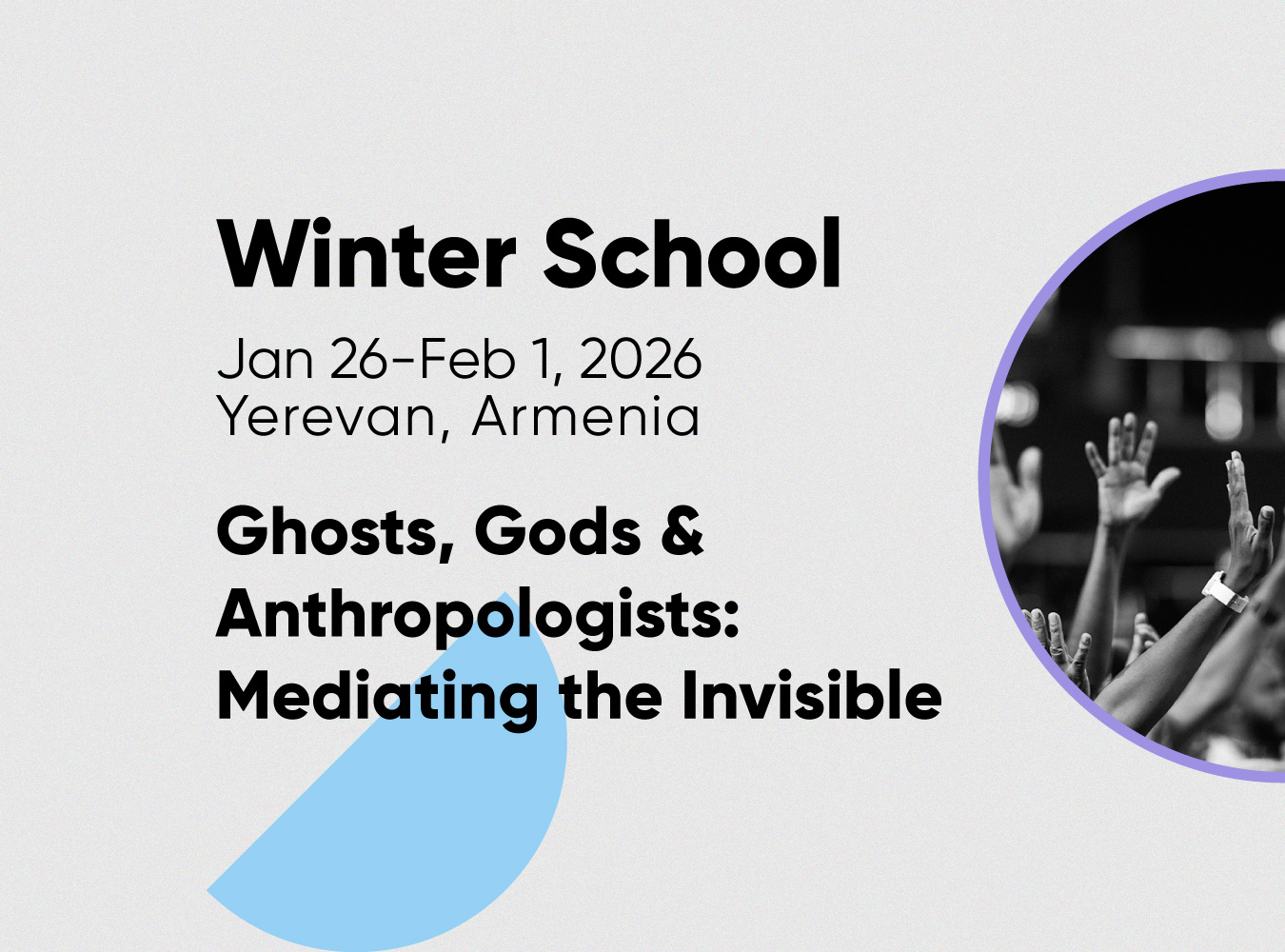
Winter School | Ghosts, Gods, and Anthropologists: Mediating the Invisible
Ghosts, Gods, and Anthropologists: Mediating the Invisible is the Winter School designed for graduate students interested in the ethnographic study of the supernatural, the sacred, and the unseen. This program explores how anthropologists engage with invisible entities — spirits, deities, ancestors, and other non-human agents — as real and meaningful presences in the lives of the communities they study. Through lectures, seminars, and master classes, participants will critically examine how different ontologies challenge Western and / or modern secular frameworks and invite new ways of thinking about presence, agency, and evidence in lived religion.
The Winter School will bring together scholars in the anthropology of religion, animism, and the paranormal to address the methodological, ethical, and epistemological questions that arise when the boundaries between belief and knowledge, subject and object, seen and unseen, are blurred. Participants will gain tools for reflexive and respectful ethnographic practice, and will be encouraged to consider how anthropologists can act as mediators — not just translators — between worlds that are often invisible, but deeply real to those who inhabit them.
The Winter School will include five days of classes and one day for a field trip. Each student will present their current project or an article in progress for discussion with peers and instructors. Among the workshops, there will be a dedicated session on preparing an article for submission to an anthropological journal.
Lecturers
Yulia Antonyan, Yerevan State University, Armenia
David Henig, Utrecht University, the Netherlands
Tea Kamushadze, Georgian Institute of Public Affairs / Ivane Javakhishvili Institute of History and Ethnology, Georgia
Jeanne Kormina, Yerevan Centre of International Education, Armenia / Groupe Sociétés, Religions, Laïcités, CNRS-EPHE-PSL, France
Dmitriy Oparin, Max Weber Network Eastern Europe fellow / University Bordeaux Montaigne, University of Bordeaux, CNRS, France
Sergei Shtyrkov, Yerevan Centre of International Education, Armenia / Groupe Sociétés, Religions, Laïcités, CNRS-EPHE-PSL, France
Konrad Siekierski, Institute of Turkology and Ottoman Studies, Free University, Berlin, Germany / Department of Armenian Studies, Pázmány Péter Catholic University, Budapest, Hungary
Laur Vallikivi, University of Tartu, Estonia
Conditions
Admission is competitive. Participation in the Winter School is free of charge. Accommodation will be covered by the organizers, while participants are expected to cover their travel expenses to and from Yerevan. In exceptional cases, the organizers may offer a limited number of travel grants.
To apply, please fill out and submit the application form below by November 10. Please also include the names and email addresses of two referees (e.g., your academic supervisor or another senior colleague familiar with your work) in the motivation letter.
Key Information
Location: Yerevan
Dates: January 26 – February 1, 2026
Duration: 7 days
Application deadline: November 10
Notification of results: November 25
Additional Details
Start Date - 2026-01-26














